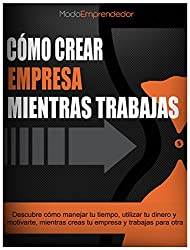
In this article you will know the best 5 lessons from successful entrepreneursbased on a study of more than 200 entrepreneurs.
It is difficult to find successful entrepreneurs who without having been under the direction of a tutor, are the best in their fields.
Socrates was Plato’s teacher, and Plato in turn was Aristotle’s. The jobs they did did not die with them; they found other minds that allowed them to evolve and shape history.
We see that knowledge is a cascade that goes from generation to generation and entrepreneurship is no exception.
Pejman Ghadimi understands this perfectly. His work on the project Secret Entourage and I work as the author of the book Third Circle Theory, have allowed him to be hand in hand with hundreds of successful entrepreneurs; that showed him a different perspective of the world, entrepreneurship and business.
Below you will find what for Ghadimi have been the 5 lessons from successful entrepreneurs that brought him the most value and their explanation:
The best 5 lessons from successful entrepreneurs.
1. It is more than vision; it’s all about perspective.
In many cases, people seek to have the necessary vision to see where they are going. But many of today’s successful entrepreneurs didn’t start with a vision; They started with a unique perspective on a product, service, or company; which eventually led to a vision based on his initial efforts.
Perspective is what helps launch the business; Vision is what guides you to long-term success and enables you to survive any turbulence.
Nine out of 10 people interviewed did not know the success they would find. They knew they were onto something; so they decided to act.
From their perspective, they believed they had identified an opportunity.

2. Scale multiple sources, not multiple businesses.
People often ask me if they should have multiple businesses simultaneously or focus on one.
While I believe you should commit to a business while it gains traction, other successful entrepreneurs say that those who were most successful weren’t the ones who diversified their business portfolio from the start; but those who diversified their income streams within the business.
They kept their focus on growing a business, but they realized that the business does not depend solely on one source of income to survive.
Utilizing multiple revenue streams allows the business to grow despite consumer behavior; market demand; or economic changes.
McDonald’s is a good example of this.
Although it might look like a restaurant franchise with thousands of locations and low prices; It’s actually a “smart move” in real estate.
McDonald’s is one of the largest real estate owners in the United States. The business objective is to be a profitable restaurant; But his income is supplemented by a real estate strategy that can survive even a bad sales year.



3. You can’t eliminate your fears, they evolve and take new form.
We all have fears. Those who learn to master their fears and their reactions to those fears tend to move on in life and business.
One of the biggest surprises during my interviews was learning how those fears never really go away; instead they are more deeply suppressed; enough not to obstruct the actions that would make a person successful.
In other words, the same fears continue to exist in us, but they evolve to take a new form.
As more than 90% of my interviewees shared, learning to control emotional reactions has proven to be one of the most successful traits.



4. Those who embrace leadership go further.
Many in my academy have succeeded on their own, without partners, without funds, and without employees.
Harnessing the power of outsourcing or delegating tasks can be beneficial.
But those who have really made the biggest impact as entrepreneurs share in common the ability to leverage a team. A team that they have built, trained and grown to adapt to the long-term vision and the skills necessary to carry it out.
Typically, those who displayed leadership skills as a priority in their business achieved much higher levels of success.
Everybody knows that six hands and three minds are better than two hands and one mind. But imagine the power of all those hands and minds if they are in sync and working towards a common cause.
The ability to build and increase team cohesion is enormous.



5. Self-awareness trumps skills.
Most people assume that success is directly related to the specific skills that an individual possesses.
But in my case, I didn’t study or understand the business when I started. However, I understood people, which is one of the greatest assets in business.
Many of the interviewees lacked specific skills that would help them succeed, but they had enough awareness to recognize their own strengths and weaknesses. In doing so, they found alternative ways to get the job done.
Self-awareness is one of humanity’s greatest skills and often the most lacking, because we are often byproducts of our environment and the observations we make early on.
Those who know themselves no longer allow their environment to change their perspective.Rather, they understand how to influence such environments to change the perspectives of others.
That ability is much more important than acquiring all the skills necessary to bring a business to life.



The latest lessons from successful entrepreneurs.
Over the past six years, I have learned that success comes in all forms. I have also learned that money is the simplest and most common commodity we have; and although we learn to value it at a very young age, it can often become an endless “rat race” to get more.
Successful entrepreneurs know that they have to disconnect their emotions from money, to gain the mental freedom necessary to achieve what they are passionate about.
I hope these lessons will be of great help to you 🙂
And remember, if you are really interested in creating your own business, you can read our book “How to create a company while working: Discover how to manage your time, manage your money and motivate yourself while creating a company and working for another” , where you will find all the information you need to found your own company, without having to leave your job.



